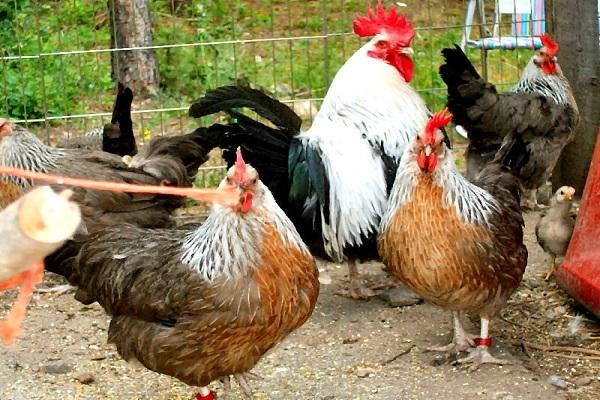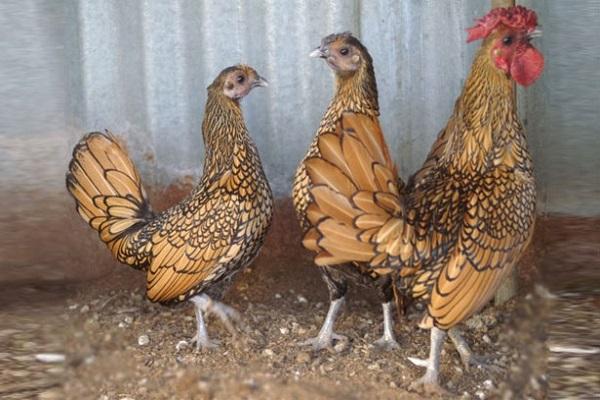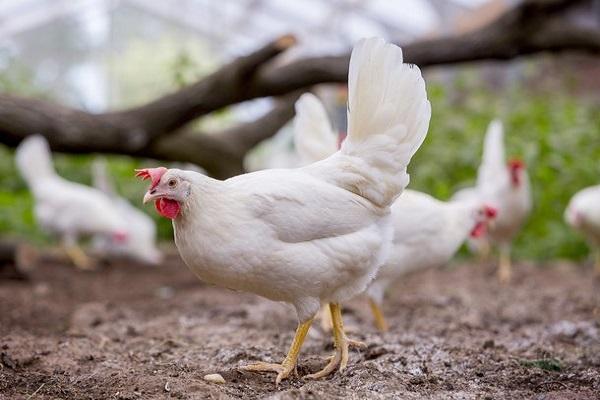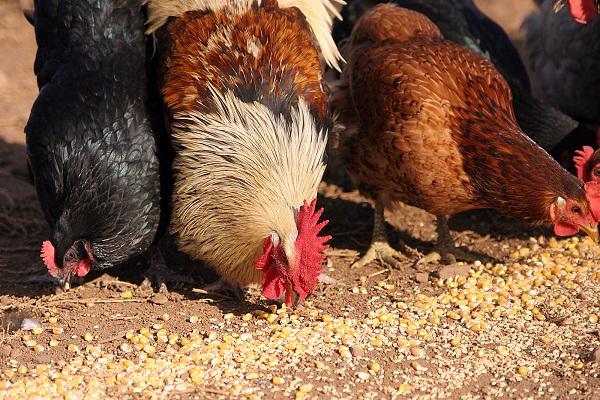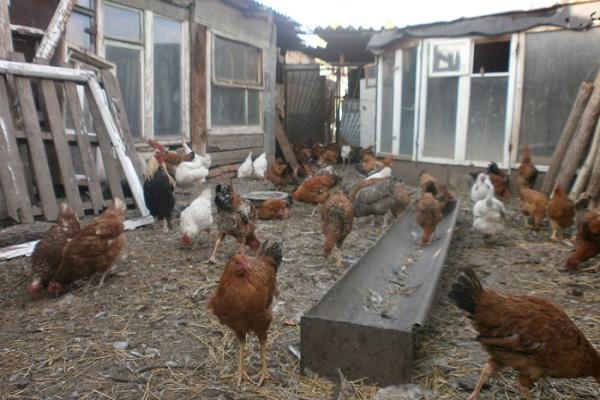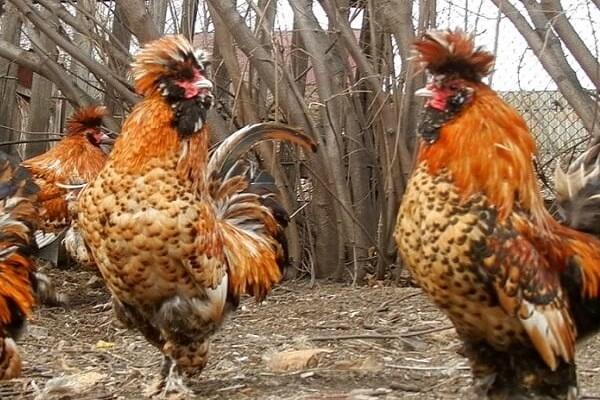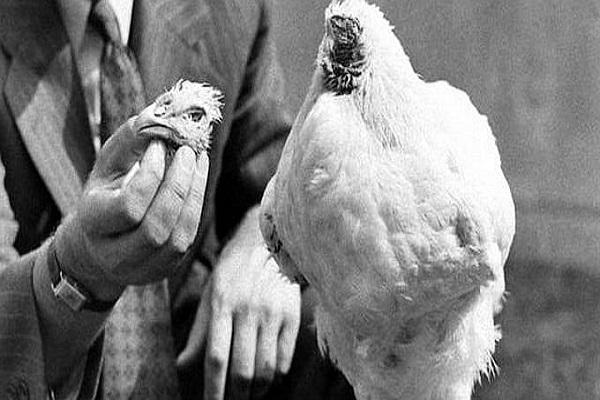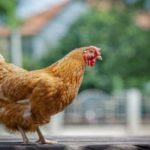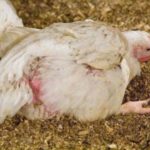The widespread distribution of chickens of various breeds in private backyards is due to the profitability of production and the taste of the products. For rational farming, planning and timely renewal of the herd, it is necessary to know how many years a rooster or hen of a certain breed lives, when an age-related decrease in egg production occurs and intensive weight gain stops.
- How many years does a chicken live?
- Meat
- Meat and eggs
- Egg
- Decorative
- Factors influencing life expectancy
- Breed characteristics
- Proper feeding
- Conditions of detention
- Diseases
- How many years can you keep chickens?
- The longest living chickens
- How long do roosters live?
- How long can a headless chicken survive?
- How to increase the lifespan of domestic chickens?
How many years does a chicken live?
The lifespan of chickens depends on their purpose. With scrupulous planning and proper management of the farm, poultry farmers do not wait for the natural death of birds. With the onset of an age threshold, after which a decrease in productivity inevitably occurs and keeping the bird becomes unprofitable, the old chicken is replaced with a younger individual.
Meat
When raising chickens for meat, life expectancy is usually calculated in months. Intensive feeding from an early age promotes active weight gain. Meat chickens gain the most weight in the first two months. Further, daily growth, at the same feeding rates, decreases sharply. The taste of meat also changes, not for the better.
Chickens of meat breeds are bred for a short period of time; within three months they are slaughtered. The maximum lifespan of meat breeds in households is six months.
Meat and eggs
Under optimal housing and feeding conditions, meat-and-egg hens in private backyards begin to lay eggs at the age of four months and actively continue to delight their owners with dietary eggs for up to two years. Starting from this age, the number of eggs laid gradually decreases, and chickens are most often sent to slaughter.
Egg
Egg breeds are highly productive, but are demanding in terms of housing and feeding conditions. In the first years of life, with proper care, the productivity of egg layers is at a high level. Starting from the age of three, there is a gradual decrease in egg production; It is much more profitable for poultry farmers to replace an old chicken with a younger one.
Households often have highly productive chickens that lay eggs well for up to five years.
Decorative
The lifespan of ornamental breeds depends on the purpose of their cultivation. Most often, such a bird is bred solely for beauty. With timely vaccination, proper maintenance and free range, ornamental chickens can easily live up to 17 years, and for many years they delight their owners with their extraordinary beauty.
Cage keeping and a sedentary lifestyle negatively affect the spectacular representatives of the decorative breed. In such conditions, the life expectancy of a chicken is much shorter.
Factors influencing life expectancy
Where chickens live affects their life expectancy. When raising birds on farms and factories, their productivity is artificially accelerated. As a result, there is a sharp increase in weight gain and egg production for a short period of time. After just a few months in this mode, the bird uses up possible resources: there is a decrease in daily weight gain in meat breeds and in the number of eggs laid in meat-egg breeds. The chickens are immediately sent to slaughter.
At home, a more attentive and careful attitude towards the bird. There are often cases here when the pet is left as long as it continues to lay eggs at least a little.
The average life expectancy of domestic chickens is determined by several factors:
- peculiarities of nutrition and maintenance;
- breed standards;
- the likelihood of contracting all kinds of diseases.
Let's take a closer look at each point.
Breed characteristics
Broilers are the least likely to stay in households. They are purchased in the spring, and as soon as the bird has gained sufficient body weight, it is slaughtered. Meat and egg breeds are much luckier.Such a bird is kept for several years until egg production remains at a high level.
Proper feeding
A balanced diet guarantees timely development and stable egg production of chickens. When raising birds, they adhere to established feeding standards appropriate to the breed. This prevents both obesity and excessive thinness of the bird, and extends its healthy lifespan.
Predominant food for chickens is freshly prepared mash, consisting of steamed feed with vitamin supplements. Dry grain ensures smooth functioning of the stomach. From spring to late autumn, grass is included in the chickens' diet. Adding vitamins and minerals to food helps increase egg production and ensures shell strength.
Conditions of detention
Creating favorable conditions for keeping chickens promotes the timely development of poultry and helps prevent a number of dangerous diseases that increase mortality and shorten life. For chickens you will need:
- maintaining optimal temperature and humidity in the room;
- poultry house lighting for at least 14-16 hours;
- arrangement of a reliable ventilation system;
- free daily walking for at least three hours;
- compliance with sanitary standards when placing poultry;
- installation of a sufficient number of feeders, drinkers, nests, perches.
- constant presence of sand and ash in the chicken coop;
- Carrying out periodic disinfection of the poultry house.
Fulfillment of all the above conditions has a positive effect on the health of chickens and increases their lifespan.
Diseases
Often, premature mortality of chickens is caused by the development of various infectious diseases.Timely vaccination of the livestock will help prevent diseases and damage to the entire herd.
How many years can you keep chickens?
The average lifespan of a chicken is 15 years, the maximum is 22 years. However, chickens rarely survive to a ripe old age. Usually, when productivity decreases, they are immediately sent to slaughter.
The longest living chickens
An average old chicken is considered to be one that has lived to be 13 years old. The old dwarf hen, listed in the Guinness Book of Records, turned 14. According to unconfirmed facts, the long-lived hen lives in China. Her age has reached 20 years.
How long do roosters live?
On average, meat breed roosters are kept on farms for about three months. At this time, the maximum possible daily growth occurs, and the bird gains the required weight.
It is impossible to imagine raising egg and meat-egg chickens without an active rooster on the farm. However, as birds age, fertility decreases. To obtain healthy offspring and a high percentage of chicks hatching, the rooster in households is changed every year or two. Active individuals are often found. Such a rooster is allowed to live in the chicken kingdom for about four years.
How long can a headless chicken survive?
The life of the average chicken is coming to an end. An aged bird is prepared for slaughter; its head is cut off. However, due to anatomical features and the preservation of motor reflexes, after cutting off the head, the chicken continues to live for some time.
A unique case of a long life of a rooster without a head was recorded in the state of Colorado. When slaughtered, part of the spinal cord remained intact, and the headless bird lived for 18 months. The rooster was fed liquid food through IVs.He walked confidently, slept on a perch, and even tried to sing in the morning. The cause of death was the mucus not being pumped out in time. In the city of Fruita, a metal monument was erected in his honor and an annual festival is held.
How to increase the lifespan of domestic chickens?
If there is an urgent need, you can influence the life expectancy of domestic chickens and help increase it. To do this you will need:
- Organize a rationed diet with excellent quality feed.
- Establish a clear daily routine.
- Arrange the chicken coop in accordance with maintenance standards and favorable conditions for a comfortable life.
- Eliminate possible causes of stress.
- Organize daily walks in the fresh air.
- Develop a vaccination schedule and stick to it.
As a rule, chickens are not allowed to live a full life. This is due to decreased profitability of maintenance and high costs. On private farmsteads, poultry are kept, on average, for no more than six years; on farms, the lifespan of chickens is much shorter.

